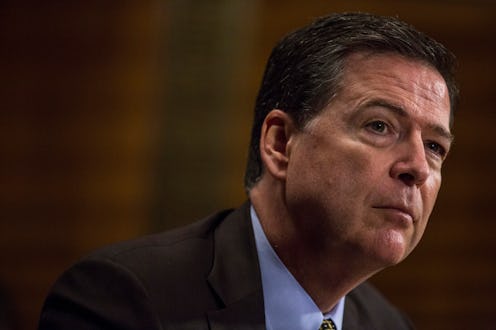
On Thursday morning, former FBI Director James Comey appeared in front of the Senate Intelligence Committee during a highly-anticipated hearing. During his testimony, Comey is expected to address Donald Trump's requests for his loyalty — as described in Comey's publicly released opening remarks — as well as investigations into the Trump campaign's ties to Russia. Given that the committee has a number of significant questions for him, how long will Comey's testimony last?
According to CBS News, his testimony — which began shortly after 10 a.m. Eastern Time — will last up to three hours, after which a private, closed-door session is scheduled to take place at no later than 1 p.m. Comey will also be present at this session, where he will undergo further questioning from the Senate Intelligence Committee. The committee's chairman, Richard Burr, consequently asked his fellow committee members to save any questions pertaining to classified information until the closed-door session.
Washington's attention has been on Comey for some time now, especially due to the questionable circumstances around his firing and the fact that as a result, Comey appeared at Thursday morning's hearing as a private citizen. Despite being out of a job, however, Comey has remained a public figure, and his detailed accounts of five one-on-one conversations with the president — published by the Senate Intelligence Committee ahead of Thursday's hearing — contained some troubling revelations about the president's demands.
Toward the beginning of the hearing, the committee's preliminary questions to Comey largely pertained to Russian interference in the presidential election. Comey confirmed his assertion that there had indeed been Russian interference, but also said he had not seen any evidence of votes being altered.The committee subsequently asked Comey if he stood by his choice to release information to the American public about Hillary Clinton's emails right before the election, to which he responded that he would not have done anything differently.
There were other questions that Comey said he could not answer in an open session, however, because his responses would either contain classified information or reveal details about ongoing investigations.
But when the questioning progressed to Comey's opening remarks, which documented multiple one-on-one interactions he had with the president, the former FBI director said something the committee perceived as significant. Comey said he felt the need to keep written records of all of their conversations because he was concerned that Trump would distort the contents of those meetings — a concern he did not feel when interacting with former President Barack Obama.